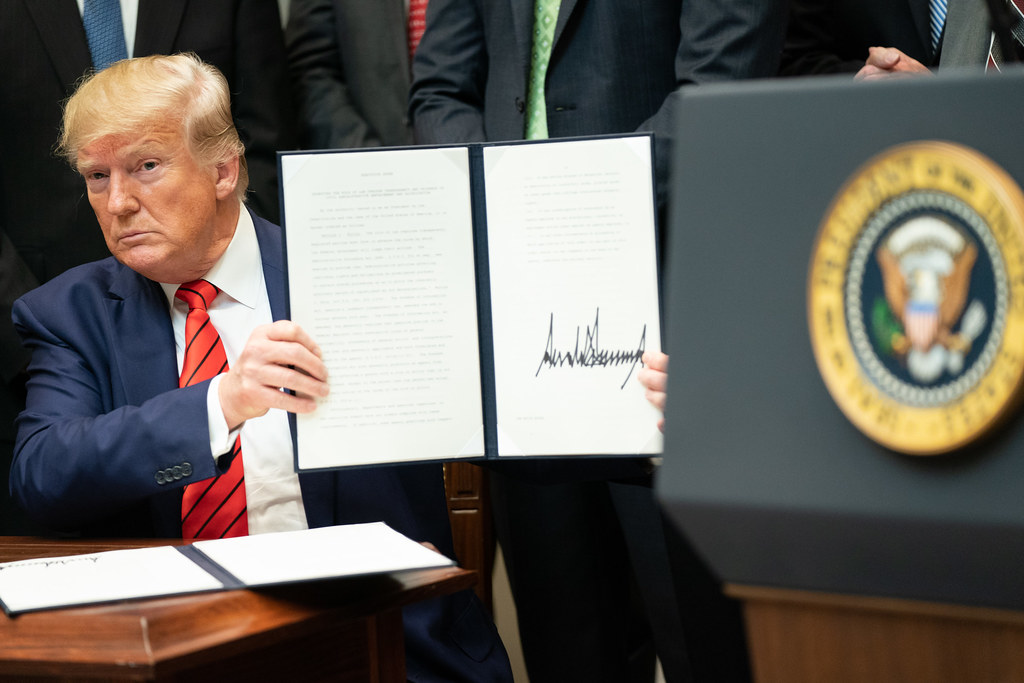
President Donald Trump recently reignited tensions with Canada, making a series of controversial remarks during a signing ceremony in the Oval Office. Trump’s comments come in the wake of his stunningly audacious new plan to slap a 25% tariff on every single automobile imported into the United States. He justified new tariffs on Canadian goods, describing them as an effort to prevent drug smuggling over the U.S.-Canada border.
Earlier this month, Trump finalized the tariffs on automobiles — asserting that the U.S. doesn’t need Canadian products. And he made no bones about it. To put it crassly, we don’t want Canada building our cars. We want to make our own cars. This agreement is a major step forward for Canadian trade, to put it mildly. It indicates that the U.S. can thrive without depending on its northern partner.
In truth, Trump’s claim should have raised alarms even before the event. He argued that without U.S. economic assistance, Canada “would no longer be a country.” Elected officials and the general public from across Canada have united to condemn this remark. They regard it as an irresponsible, provocative statement which challenges the sovereignty and authority of Canada.
Threats of Higher Import Tariffs
Trump even threatened to raise import duties on Canadian-built cars. He floated the idea of raising those tariffs even higher than the current 25%. His argument, as I understood it, was that when he puts tariffs on Canada they pay the 25%. He went on to say that this rate could be even higher for automobiles. By imposing these tariffs, he made clear, it’s pretty simple — “We don’t need your cars, thank you very much.” His comments have raised fears of such. At the very least, they risk poisoning the well of overall trade relations and bilateral economic stability between the two countries.
Economic pressure Previous iterations of Trump’s administration were the first to propose using economic coercion to make Canada the 51st state. He has, over time, mellowed on that concept. His latest comments have brought new life to his old threats and what they might mean for Canadian sovereignty and identity.
Despite the tensions, Trump noted that he had “a couple of very nice conversations” with Mark Carney, a prominent Canadian economist and former governor of the Bank of England. Trump appeared to refrain from commenting on Canada’s upcoming election. His comments suggest that he is still very much engaged in Canadian affairs and could yet bend public opinion before the election.
Trump’s tough talk about Canada has angered Canadians—heightened by a view of Trump from afar that he has been bullying and patronizing. The old president’s remarks led to highly publicized debates between Canadian politicians. Now, they are calling attention to a lack of solidarity, urging all countries facing what they perceive as U.S.-led economic intimidation to stand together.
A week later, Carney issued a rebuttal to Trump’s proclamations that packed a wallop. Echoing the strength of the Canadian people, he concluded on an optimistic note, “We are what Donald Trump can’t destroy.” This statement reflects a growing sentiment among Canadians who believe in their country’s ability to thrive independently of U.S. trade relations.
The ongoing trade war and contentious remarks by Trump pose significant challenges for Canada as it prepares for its upcoming elections. Indeed, the legacy impacts of Trump’s tariffs and his comments on Canadian sovereignty continue to reverberate in Canadian political circles to this day. They ignite impassioned debates over multicultural values and self sufficiency.
Author’s Opinion
Trump’s rhetoric and aggressive trade policies threaten to undermine the delicate balance of U.S.-Canada relations, challenging Canada’s sovereignty and self-sufficiency. His tariffs, while framed as protective measures, risk escalating tensions and damaging the bilateral ties that both countries have long relied upon. The public outcry in Canada is a testament to the resilience of its people, who continue to stand firm in the face of external pressure. Trump’s comments only serve to highlight the deepening divide between the two nations and the complexities of their shared economic future.
Featured image credit: Trump White House Archived via Flickr
Follow us for more breaking news on DMR
